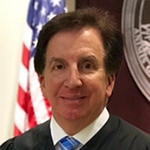Responsibilities
Mission Statement: The mission of the Charleston County Probate Court, provided the sensitive nature of the matters we handle, is to deliver essential services that protect and uphold the best interest of the individuals whose lives we impact. We strive to serve the citizens of our community with compassion, integrity, dedication, professionalism, and efficiency.
Functions
The Probate Court assists the citizens of Charleston County in probating estates, resolving disputes in estates and trusts, handling involuntary commitments for alcohol/drug abuse and/or mental illness, obtaining marriage licenses, appointing and supervising guardians and conservators, and approving minor and wrongful death settlements. Probate Court includes the Estate, Commitment and Marriage Divisions. The Probate Judge is elected countywide and serves a four-year term.
The Probate Court has jurisdiction over Marriage Licenses, Estates of Deceased Persons, Guardianships and Conservatorships of Incapacitated Persons, Settlements for Minors and Wrongful Deaths, and Involuntary Commitments of Mentally Ill and/or Chemically Dependent Persons.
To address community issues, Judge Condon has implemented a Mental Health Court, an Adult and Juvenile Drug Court Program, and a Veterans Treatment Program. Judge Condon has partnered with the Charleston School of Law to assist seniors in our community.
Contact
Probate Court
Judicial Center
![]() 100 Broad St., Charleston, SC 29401
100 Broad St., Charleston, SC 29401
Phone: (843) 958-5180
Fax: (843) 958-5191
Office Hours*:
M – F | 8:30AM – 5PM *Virtually 24/7
Probate Court Judges
Offices and Divisions
Problem Solving Courts
History
The forerunner to the Probate Court was the Court of the Ordinary. The founding of the Colony in 1670 led to the creation of the original Probate Court. In the court's early days, the Royal Governors or their secretaries were the only Ordinaries in the province. Beginning in 1778, the S.C. Commons House of Assembly was to appoint Ordinaries for each of the province's seven court districts; however, due to the presence of British forces in South Carolina, no District Ordinaries were appointed until 1782. When the last Royal Governor fled after the adoption of the Federal Constitution on June 21, 1788, the General Assembly appointed an Ordinary to fulfill the duties of the office in Charleston District.
In 1787, duties of the District Ordinaries were transferred to county courts; but because Charleston District had no county court, a 1789 law directed the Ordinary to continue. County courts were abolished in 1799. Within the year, the S.C. General Assembly created 24 circuit court districts whose Ordinaries they appointed until 1815 when they became elected.
The S.C. Constitution of 1868 replaced the Court of the Ordinary with the Probate Court. Changes to the S.C. Constitution in 1895 required the Probate Court to be dependent on the General Assembly for funding and legal procedures. This was so in all counties except Charleston where it remained a constitutional court until 1962.
Unlike other judges in South Carolina, the probate judge is selected by popular election to a four-year term.
Common Terms
- Accountings
- Reports that contain the annual and final fiscal reports showing receipts and disbursements with date and purpose.
- Estate Papers
- The original probate papers such as wills, inventories, letters, accountings and related papers.
- Probate
- The legal process of wrapping up a person's affairs, paying their bills and distributing their assets.
- Testator
- A person who has made a legally valid will before death.
- Will Books
- Recorded transcripts of the original probate wills that give information about proving the will and qualifying the personal representative.
Interesting Facts
- The Estate Division opens approximately 2,200 estates a year and tries approximately 400 litigated cases.
- On average, the Commitment Division handles 2,000 commitments per year.
- The Marriage Bureau issues an average of 5,000 marriage licenses per year.
- Copies of wills from 1671-1871, as well as estate inventories and miscellaneous records from 1687-1785, are housed in the South Carolina Room of the Charleston County Main Library. The original documents are stored at the S.C. Department of Archives and History.
- Probate Court has records of marriage licenses from 1879-present. Prior to 1879, churches kept these records.
- Charleston County provides funds for the Probate Judge to appoint one full-time and two part-time Associate Probate Judges.
- Probate Court matters are generally conducted without a jury, but, under state law, parties have the right to request a jury trial.


Charleston County
ChasCountyGov
ChasCountyGov
Charleston County Government
CharlestonCountyGovernment
CharlestonCountyGovernment
CharlestonCountyGov
ChasCountyGov